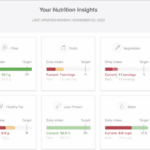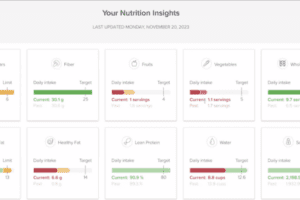 The following is a guest article by Jeanne Greathouse, Healthcare Development Director, AI Regulatory Services at BSI
The following is a guest article by Jeanne Greathouse, Healthcare Development Director, AI Regulatory Services at BSI
77% of Healthcare Workers Say They May Be Ready to Let AI Take on Administrative Work
Few industries have been stress-tested as thoroughly as the healthcare system during COVID-19 when, at the worst moments, 22% of US hospitals were reporting staff shortages. Even three years on, the World Health Organization found that 84% of countries were still experiencing some disruption. Amid a period of tremendous medical uncertainty and service disruption, health workers and first responders functioned like a life vest keeping society afloat – and healthcare providers were prompted to seek innovative ways to produce better care outcomes for patients and be better prepared for unpredictable future medical challenges.
That focus on innovation in healthcare continues, driven by Artificial Intelligence (AI), with the Global Generative AI in Healthcare Market expected to be worth $17.2 billion by 2032. Fortunately, consumers are largely excited about AI’s potential in this space. According to BSI’s recent Trust in AI Poll, which surveyed 10,000 adults across nine countries, including the U.S., 47% of Americans say they are excited at the potential for AI to improve medical diagnostics, and 51% believe it can help ease pressures on the healthcare system.
Whether by alleviating workforce shortages or finding new ways to treat complex illnesses, AI has the potential to bring enormous societal benefits. Digging into the details, here are three areas in which AI is, or has the potential to be, transformative in healthcare – and a look at the path forward to secure buy-in from employees and patients for its use.
Providing Superior Patient Care
More than half of American consumers BSI polled said they are excited for AI’s potential to improve the accuracy of a diagnosis or speed up recovery times – and they are right to be. One of AI’s strengths lies in rapid data analysis and pattern recognition; machine learning models are set up to accomplish a thorough breakdown of data more quickly than humans.
This means AI is well-positioned to analyze medical records and treatment histories to more quickly detect the signs of illness to inform and intervene in diagnosis. One early study found that AI, using algorithms and deep learning, had a better accuracy rate than 11 pathologists at detecting breast cancer. Another recent University of Washington study found that AI spotted warning signs of mental health issues in everyday text messages at the same rate as human psychiatrists.
The possibilities are huge. For healthcare providers, the key to bringing these solutions to life with patient buy-in is transparency. More than two-thirds (67%) of Americans said they believe patients must be made aware when AI is being used in their treatment, and roughly 54% of patients say they’re willing to support the use of AI tools as long as they’re overseen or managed by a qualified person.
These findings indicate just how important it is for patients to know exactly how AI will be involved in their treatment plan and to have qualified doctors who can accurately and authoritatively describe its implementation. By combining AI-enabled decisions with expert judgment, patients can have peace of mind knowing they are supported by fellow humans as they continue to gain trust in AI technology.
Empowering Workplace Efficiencies
At the height of the COVID-19 pandemic, according to the World Economic Forum (WEF), “pressures on healthcare systems affected the mental health of healthcare workers across the globe, leading to significant burnout.” When doctors, nurses, and other care workers are stretched thin by administrative tasks and busy work, there is the potential for it to become far more difficult for them to provide the kind of individualized care that patients deserve.
This is another area where AI could be applied to great effect. By automating things like appointments and simplifying paperwork, research suggests AI-driven solutions could save workers both time and mental energy, enabling faster and clearer communication with patients. Automated chat responses can, for example, help patients get answers to simple medical questions without needing to wait for their doctor to respond, bringing benefits to people and their doctors.
Workers are seemingly on board with bringing AI into the workplace, but they also stress the importance of having the right guardrails. More than three-quarters (77%) of healthcare workers globally said they would trust AI to do some or all of their jobs, but only with appropriate training. Workers and patients stand ready to welcome AI but are looking to feel confident that its implementation follows a standardized, well-understood scope of work.
Accelerating Medical Innovation
Implementing AI into patient care doesn’t have to stop at identifying illness or reducing wait times. Already, AI has proven capable of advancing medical innovations in clinical trials to power new and improved medical devices. From 3D-printed limbs to surgical robots, health providers have implemented AI to find creative treatment solutions for complex medical issues.
We’re already seeing the benefits of AI-infused research in pharmaceuticals and drug development. According to WEF, the largest ten pharmaceutical companies have either partnered with or acquired AI companies to make use of AI-assisted drug development and design. AI can bring benefits, including cost reduction, error avoidance, and innovative upside.
High-profile examples – like Pfizer utilizing an AI tool to speed up clinical trials of the COVID-19 vaccine – may naturally help build public trust in this kind of AI-powered innovation, but there is still more work to be done to build confidence that AI can safely innovate, diagnose, and treat. With the right guidelines, healthcare providers, pharmaceutical companies, and others in the sector have the opportunity to satisfy their patients’ desire for disclosure and provide them with the best AI-powered care available.
Looking to the Future
With AI still in relative infancy, the potential for future advancements in the medical field may seem limitless. To ensure these potentially world-changing innovations can be realized, patients must be willing to trust them. Healthcare providers who can demonstrate to their stakeholders that they’re using AI as a force for good in a safe, effective, and ethical manner will be well-positioned to capitalize on the technology’s potential and accelerate progress toward a healthier world for all.













